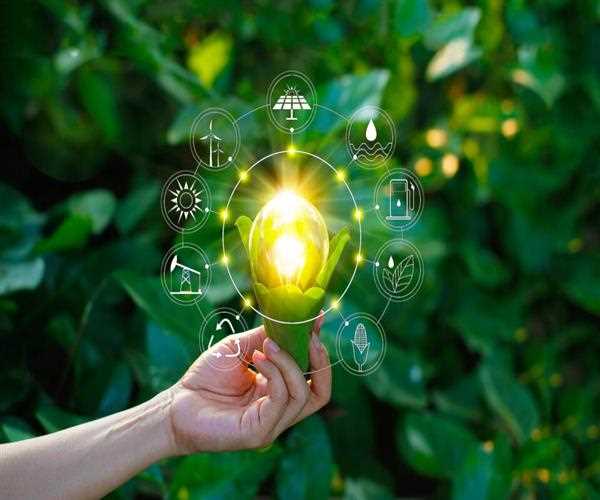
03-Jul-2023 , Updated on 7/4/2023 3:25:53 AM
The system of transforming waste into resources with sustainable technology
Highlights
-Transforming waste into resources with sustainable technology aims to address the global waste management and environmental challenges by converting waste materials into valuable resources.
-The process involves utilizing advanced technologies and innovative approaches to reduce, recycle, and recover waste materials.
-Sustainable technology solutions such as waste-to-energy, composting, anaerobic digestion, and recycling play a significant role in this transformation.
-Waste-to-energy technologies involve converting non-recyclable waste into heat, electricity, or fuel through processes like incineration, gasification, or pyrolysis.
-Composting is a natural process that decomposes organic waste, producing nutrient-rich compost that can be used as fertilizer for agriculture and landscaping.
-Anaerobic digestion utilizes microorganisms to break down organic waste in the absence of oxygen, generating biogas and nutrient-rich digestate.
As the global population continues to grow and consumption patterns evolve, the management of waste has become a critical issue. Traditional waste management practices, such as landfilling and incineration, are not only unsustainable but also contribute to environmental degradation and climate change. However, advancements in sustainable technology offer promising solutions to transform waste into valuable resources. This article explores the potential of sustainable technology in waste management and its role in creating a circular economy.
The Problem of Waste
Waste generation has reached alarming levels, posing significant challenges to the environment and human health. Landfills, the most common method of waste disposal, release greenhouse gases and leach toxic substances into soil and water. Incineration, although it reduces the volume of waste, emits pollutants that are detrimental to air quality. Moreover, the linear model of production and consumption, which follows a "take-make-dispose" approach, perpetuates the waste problem.
The Concept of a Circular Economy
To address the waste crisis, the concept of a circular economy has gained traction. A circular economy aims to eliminate waste and maximize resource efficiency by closing the loop of production and consumption. It emphasizes the need to treat waste as a valuable resource rather than a burden. Sustainable technology plays a crucial role in enabling the transition to a circular economy by transforming waste into reusable materials and energy sources.
Sustainable Technology in Waste Management
Recycling and Upcycling- Recycling is one of the most well-known sustainable waste management practices. It involves collecting and processing waste materials to create new products. Advanced sorting technologies, such as optical scanners and artificial intelligence, have revolutionized recycling by improving sorting accuracy and efficiency. Upcycling takes recycling a step further by transforming waste materials into higher-value products. For example, plastic bottles can be repurposed into textiles, furniture, or even building materials.
Composting- Organic waste, such as food scraps and yard trimmings, can be turned into nutrient-rich compost through the process of composting. Composting not only reduces the amount of waste sent to landfills but also produces a valuable soil amendment that improves soil fertility and promotes plant growth. Innovative technologies, such as in-vessel composting systems and anaerobic digesters, accelerate the composting process and enable large-scale operations.
Waste-to-Energy- Waste-to-energy technologies convert non-recyclable waste into energy through various methods, including incineration, pyrolysis, and gasification. These processes generate heat, electricity, or biofuels, reducing the reliance on fossil fuels and mitigating greenhouse gas emissions. Additionally, advanced air pollution control systems ensure that harmful emissions from waste-to-energy plants are minimized, making it a more environmentally friendly option compared to traditional incineration.
Anaerobic Digestion- Anaerobic digestion harnesses the natural decomposition process of organic waste in the absence of oxygen to produce biogas and digestate. Biogas, primarily composed of methane, can be used as a renewable energy source for heating, electricity generation, or as a vehicle fuel. Digestate, a nutrient-rich byproduct of anaerobic digestion, can be used as a fertilizer in agriculture, closing the loop of nutrient cycles and reducing the need for synthetic fertilizers.
Waste Minimization and Prevention- Sustainable technology also focuses on waste minimization and prevention strategies. By optimizing production processes, designing products for durability and recyclability, and promoting the use of renewable and biodegradable materials, waste generation can be significantly reduced. Moreover, innovative approaches such as 3D printing and modular design enable customization, efficient use of materials, and easier repair and recycling of products.

Benefits and Challenges
The adoption of sustainable technology in waste management offers several benefits. Firstly, it reduces the environmental impact of waste management practices, leading to a more sustainable and healthier environment. By diverting waste from landfills and incinerators, sustainable technology helps to mitigate greenhouse gas emissions, reduce air and water pollution, and conserve natural resources.
Secondly, transforming waste into resources through sustainable technology creates economic opportunities. The recycling industry, for example, has the potential to generate jobs and stimulate local economies. Additionally, the recovery of valuable materials from waste, such as precious metals in electronic waste, can contribute to the development of a circular economy and promote resource security.
Furthermore, sustainable waste management technologies contribute to the development of a more resilient and decentralized energy system. Waste-to-energy technologies provide an alternative to fossil fuels, reducing dependence on imported energy sources and promoting energy independence. Localized waste management systems, such as community composting or small-scale anaerobic digestion, enhance energy and resource autonomy at the local level.
Despite the numerous benefits, there are challenges that need to be addressed for the widespread implementation of sustainable waste management technologies. One of the primary challenges is the need for infrastructure development and investment. Upgrading existing waste management facilities and establishing new ones require significant financial resources. Governments, businesses, and stakeholders need to collaborate and allocate funds to support the deployment of sustainable technologies.
Another challenge is the need for effective waste collection and segregation systems. To maximize the potential of sustainable technologies, proper waste sorting and separation at the source are crucial. Public awareness and education campaigns can help promote responsible waste disposal practices and encourage individuals to participate actively in recycling and composting initiatives.
Additionally, the integration of sustainable waste management technologies into existing regulatory frameworks is essential. Policies and regulations should incentivize the adoption of sustainable technologies and provide support for research and development in the field. Governments can introduce tax incentives, grants, and subsidies to encourage businesses and individuals to invest in sustainable waste management practices.
Transforming waste into valuable resources through sustainable technology is a crucial step towards achieving a circular economy and addressing the waste management crisis. Recycling, upcycling, composting, waste-to-energy, anaerobic digestion, and waste minimization strategies all play a significant role in reducing waste, conserving resources, and mitigating environmental impact.

Student
Economics can be broken down into microeconomics, which looks at individual decisions, and macroeconomics, which is concerned with the economy as a whole. Both types of economics utilize historical trends and current conditions to inform business decision-making and make predictions about how markets might behave in the future. Students who choose to study economics not only gain the skills needed to understand complex markets but come away with strong analytical and problem-solving skills.
Join Our Newsletter
Subscribe to our newsletter to receive emails about new views posts, releases and updates.
Copyright 2010 - 2026 MindStick Software Pvt. Ltd. All Rights Reserved Privacy Policy | Terms & Conditions | Cookie Policy